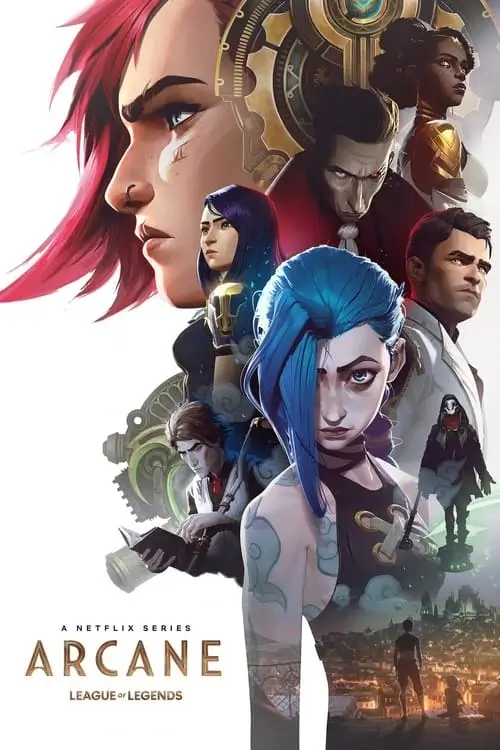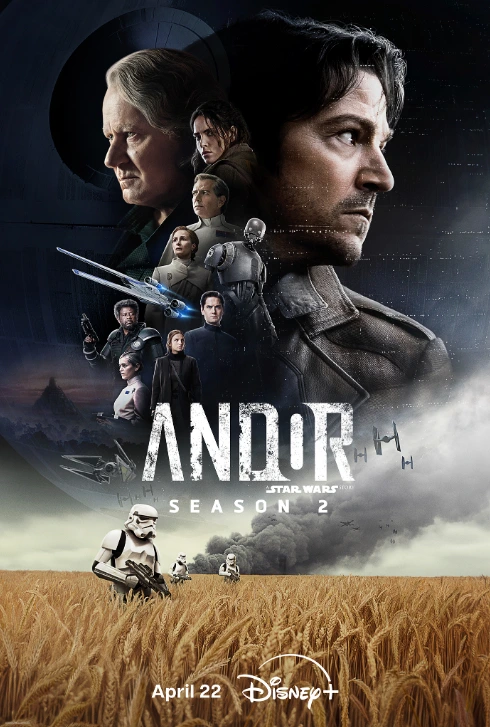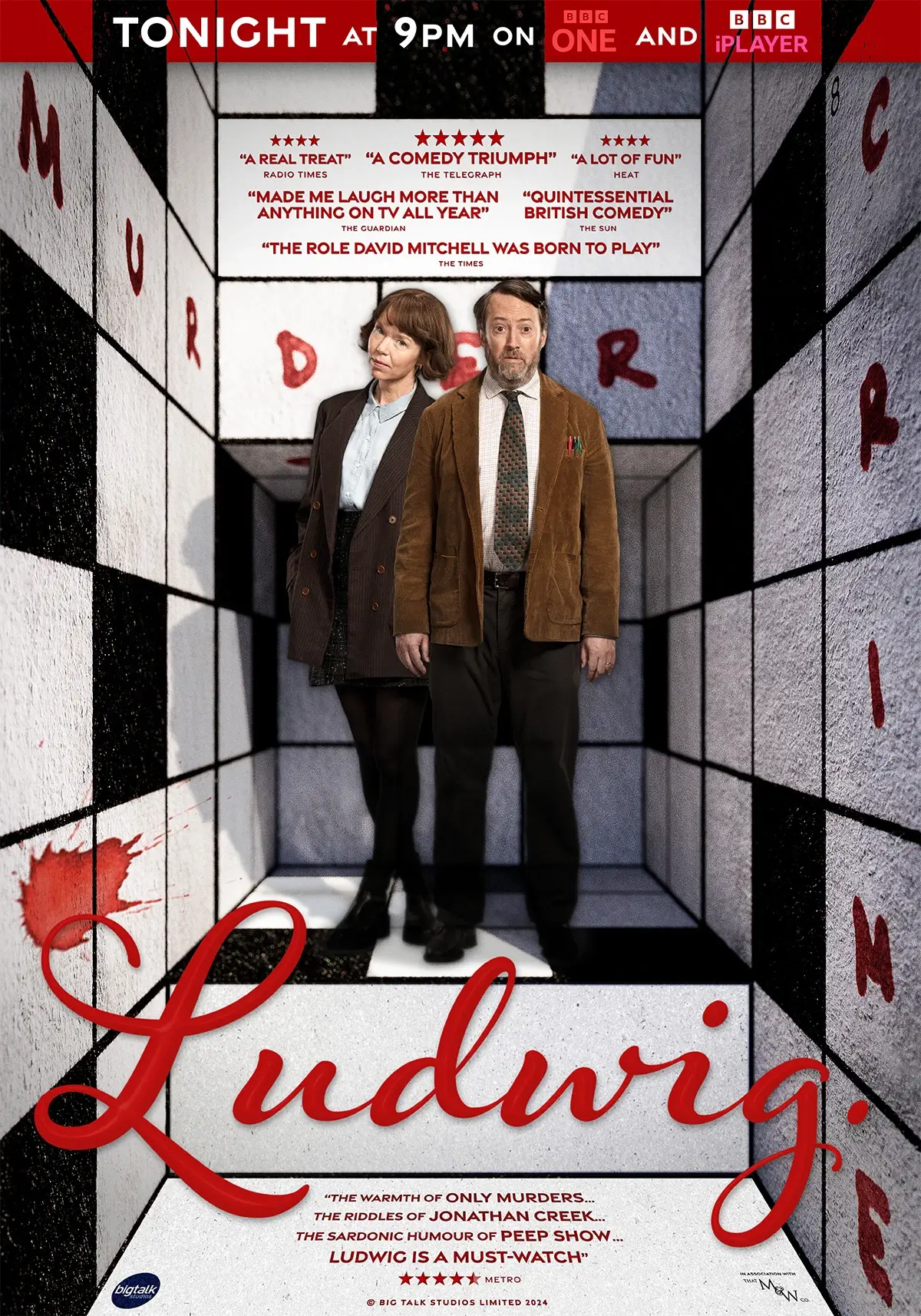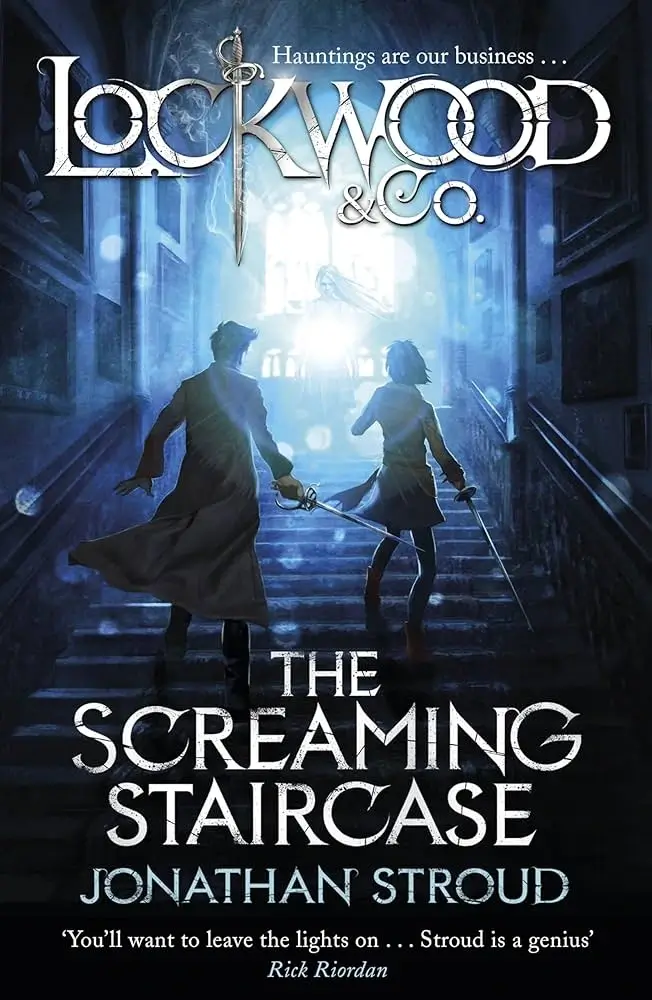This is not necessarily a review, but merely my thoughts and lessons learned from watching Arcane (season 1). Because I started writing a review, but there really isn’t much to say. The story is fantastic, the animation fantastic, the music fantastic—the review would just be a list of things that were all good. Or at least good enough that I have nothing substantial to critique.
Instead, I’m more interested in why it’s good. As a writer myself, I always hope to learn a thing or two from such unique projects.
This article has no spoilers, but it does vaguely reference a few things in the series.
Arcane versus Most Modern Shows
After giving it a lot of thought, this is the biggest distinction I want to point out: Arcane is hell-bent on telling as much story as possible, while most “modern tv shows” are hell-bent on filling a fixed number of episodes and minutes of screen time with … filler.
Take any recent Marvel show.
They apply the “formula” for storytelling, which is that you get a character and give them a goal, and by the end they reach that goal one way or another. The problem is, of course, that this is a bit thin to stretch out over 6 or 9 or 12 episodes. For hours you’re just slowly wobbling towards a preestablished finish line.
It’s boring. It’s pointless. I finally understand what people mean when they say they put on a series to fall asleep.
Arcane is not interested in that. It is chock full of story from start to finish, with no wasted scene or moment. It’s exactly as long as needed for the story.
How?
- It basically divides its season into “chunks” of roughly 3 episodes at a time. A story within a story.
- Each episode itself is a story, broken down into acts as if there were still commercial breaks between the parts.
For example, the first three episodes are clearly their own arc. Their own main characters, their own goal, and it’s all resolved by the end of episode 3.
Then we get a new chunk. The fallout from those events lead to new main characters, new goals, a new story thread.
This approach means important things happen every step of the way, because each “chunk” only has limited time to tell a completely new story. We can’t have long shots with nothing happening, we can’t slowly travel somewhere, because when the episode is over this entire story chunk needs to be wrapped up.
I’ve noticed this in all the series that I like (and are generally extremely well received). This technique has already helped me write my own stories: by seeing a huge novel as nothing more than 6 connected “chunks” (or short stories), it’s far easier to tackle and streamline.
The crucial part
The real trick is, of course, to make sure those separate chunks still form one overall story.
Again, many modern shows would use some vague looming danger or rarely referenced thread to supposedly combine it all. They’ll have one person say a throwaway line every episode about “the Dark Empire is coming!” and that’s all you get until the empire actually comes in the final episode.
Arcane does this well too. The Jayce storyline initially doesn’t seem the most interesting or focused, as it’s more about politics and vague science/magic. But from the very first moment, it’s connected to the other storylines. That’s how it’s able to tie it all together and get that common through line.
No matter what chunk of story we’re in, Jayce is pursuing pretty much the same goal with the same people the whole season. The story is simply written in such a smart way that this allows him to butt heads regularly with all the different storylines around it, creating that common thread through the chunks.
My experience writing/telling stories, teaching and creating games has shown me that humans really aren’t smart. We have a terrible memory. We can’t look into the future very well. We can’t handle a story that takes too long to do anything.
Sure, you can plan a story to always take tiny steps towards some goal, but humans simply can’t take in and enjoy such a long ass story thread.
What we can do, as imperfect humans, is build great things from tiny building blocks. That well-known principle of dividing a huge task into tiny subtasks to make it manageable. That idea of “one tiny improvement a day makes you a master in a year”.
That’s why I currently believe that any story should just be made from tinier stories. Write your story in separate chunks with their own setup, execution, and resolution. Make sure the chunks don’t go on for longer than humans can handle. Then connect them into bigger chunks. Which connect into bigger chunks. Which connect into the entire story.
Arcane sometimes moves at an overwhelming speed. Scenes can be very short and merely show you some big event that happened—taking “show don’t tell” to an extreme. Yet I was never actually overwhelmed and found it all easy to follow.
This is also related to unpredictability. I had no clue where Arcane was heading while watching it. That’s what you get when so many events happen in an episode: five events later, you’re suddenly at a different crossroads. After 3 episodes, one chunk of story ends, and the consequences shoot you into a new (unexpected) direction for the next chunk.
Why isn’t this overwhelming? Why doesn’t this feel random or hasty? Because the events themselves logically build on each other. In a single episode, you can go from one extreme to the other, as long as you show the major logical steps in-between.
So that’s the other benefit of this approach: you’re free to move in unpredictable or surprising directions all the time, without leaving a sour taste in the viewer’s mouth.
Anything else?
This is the biggest and most important distinction, if you ask me.
Because the other things that make Arcane good are just, well, good storytelling. Characters with depth, background, goals. An interesting world with many perspectives, factions, unique ideas. Great animation and music. Most of all, the story is an endless list of tough dilemmas.
- Does Vi support her sister who’s failing every mission, or make the wise choice of leaving her out of a crucially important mission?
- Does Vander fight the abuse from the leaders at the potential cost of all out war, or does he keep taking the beating?
- Does Silco accept a great offer at the cost of what is most dear to him, or does he throw away that once-in-a-lifetime chance for sentimentality?
Stories are just ordinary characters given extraordinary dilemmas. Relatable people in a setting that turns them extraordinary, interesting, special. Arcane understands this and sets up the entire world for a constant stream of tough dilemmas.
Why Arcane matters
Arcane is another example of a project taking way more time than intended. My (admittedly brief) research showed it had a lot of issues and unfortunate events, delaying the series and bleeding money. Furthermore, it was put into the hands of “first time writers”, without much experience before this.
But they pushed through. They kept faith and they kept honing the story. They kept going until it was good and they could finally release it.
And then you can create one of the best shows in recent memory.
Hopefully the people in power (and the people with money) slowly realize they should step away from only hiring people based on name, or popularity, or ticking some diversity checkbox. It’s no guarantee you get quality or that they even fit the project—in fact, people who have already made it and have financial security are less likely to care.
Hire the one who shows they have a plan, experience, and passion for the job. Do not care about “networking” or “recognizable names” or that one hit film they had 10 years ago, as reality shows it doesn’t actually mean much.
They should also step away from putting a “message” or “political agenda” at the front of absolutely everything. Sure, Arcane has messages and themes and perspectives, just like any other story. But telling a good story is clearly top priority. It’s a conflict between three sides, and you get to see all of them, both the good and the bad. That’s not a bug, that’s the feature that gives the story richness.
And, as stated, they should step away from thinking “we need ten 60 minutes episodes stat!” and only realize they have no story to fill it with later. Start with story. Story, story, story, and it takes however long it takes. Give me a 3 episode series if that’s all you have. Stretching it to 9 episodes will never do any good.
Though, as I’ve shown by now, a skillful writer could combine three 3 episode series into one bigger 9 episode story ;)
I really hope they keep up the quality and the focus on story first in the second season.
I guess what I’m really saying is that sometimes you give up, and sometimes you keep iterating and moving forward. Making that choice is hard. But currently many studios are making it willy-nilly, canceling shows with huge potential, while shoveling hundreds of millions of dollars to create garbage.
Nitpicky Thoughts
I know Jayce Thalis is supposed to be really muscular and stuff, but he often just looked like a solid cube to me. All characters were animated really well, but he seemed rigid and weird to me.
I had expected a little more of a “conclusion” at the end of season 1. The ending is good, don’t get me wrong, but it’s mostly good because it sets up a season 2 really well. While I watched Arcane, I did not know a season 2 was coming, and I had assumed it to be a one-time, standalone thing. That’s why the ending resolved just too little for my expectations.
I’m usually not a fan of adding contemporary music, or music pulled from different places (genres, artists, styles, etcetera). I can give Arcane a pass, though, because they also handled that part quite well.
Some plot developments go a bit too quickly, but I can understand that. It keeps the pace and it keeps the episodes at a very consistent length, which is always nice and a sign of controlled storytelling.
The series isn’t afraid to kill characters definitively when, realistically, they would be killed. I can applaud that. It’s part of what makes the story good and what makes you actually nervous when somebody is in danger.
Unfortunately, near the end, the author’s hands loomed over the story a little too much. A few cases were directed and told in a way that made you sure somebody was dead—just like the previous X times—but then they were suddenly fine, perhaps without any real damage. The famous “plot armor” for characters they wanted to use in the future, which goes against what makes Arcane good and special in the first place.
Similarly, the idea of Shimmer is great and used really well at the start, but near the end it becomes a magic shield to save anyone who needs saving to suit the writers. The start clearly established (in my eyes) that Shimmer destroyed your body and would weaken and kill you over time, but that doesn’t seem to be the case later. Perhaps this is paid off in season 2.
Conclusion
Arcane is good, give it a try. Besides some nitpicks—and I have some more, but they’re just not interesting to list here—I can’t really fault it.
It sets a good precedent in the media industry. Give writers without a big name a chance. Focus on good story and filling the runtime with it, instead of pushing a message or creating nine hours of filler. Give ideas a chance to develop, give them more time, don’t instantly cancel them when things go slightly bad.
It’s also another example of my recently discovered idea about cutting your story into chunks. (Which means that I only just realized it, though surely other writers have known.) Nothing should be stretched out over a period of time that’s too long; not even the most interesting idea can handle that. Instead, create mini-stories that combine into one longer story, to actually achieve a story at a more epic scale.
That’s all I have for now. I’ll watch Season 2, but knowing myself, I’ll probably be a year late to the party again.
Until next time,
Tiamo



